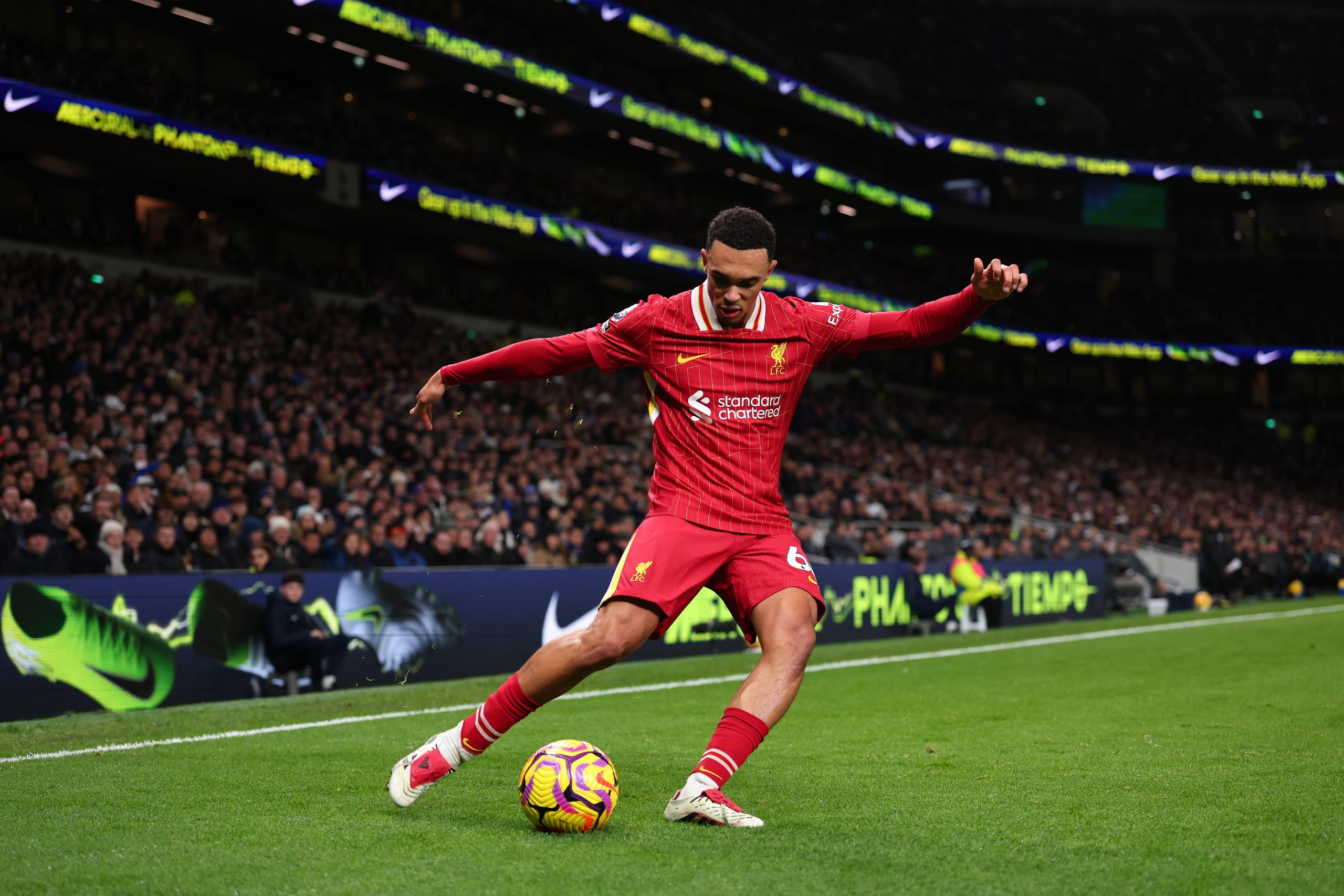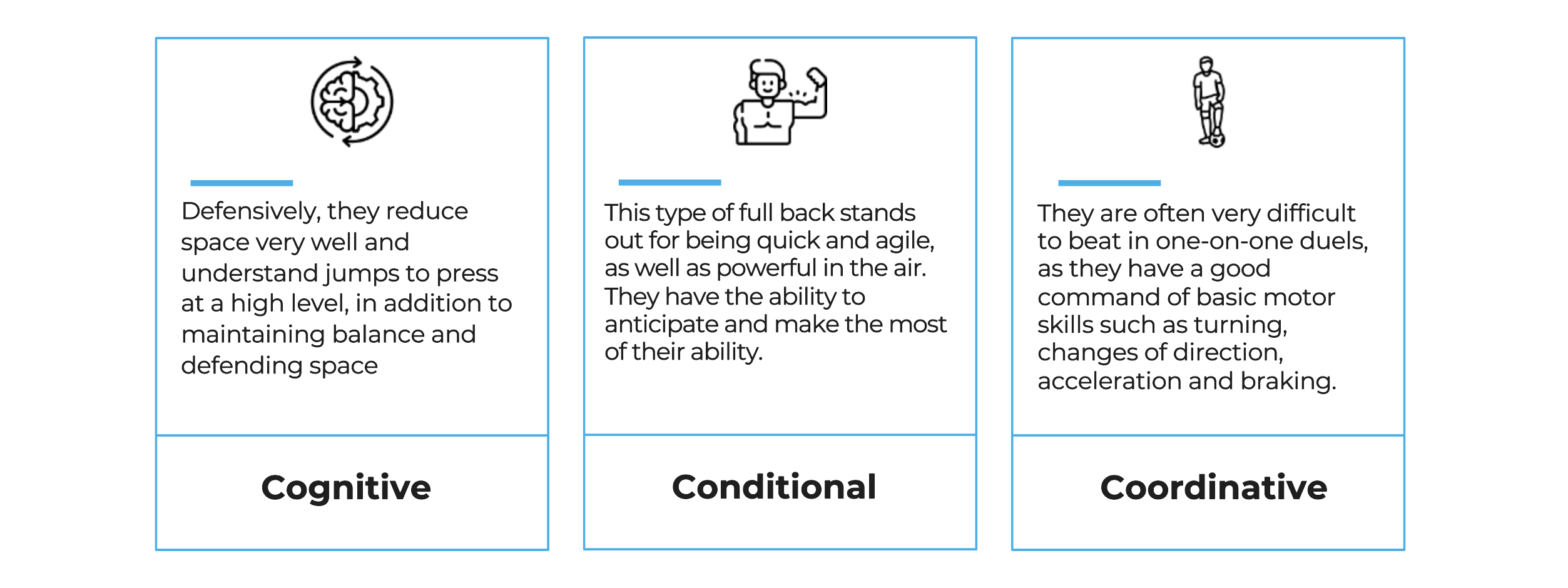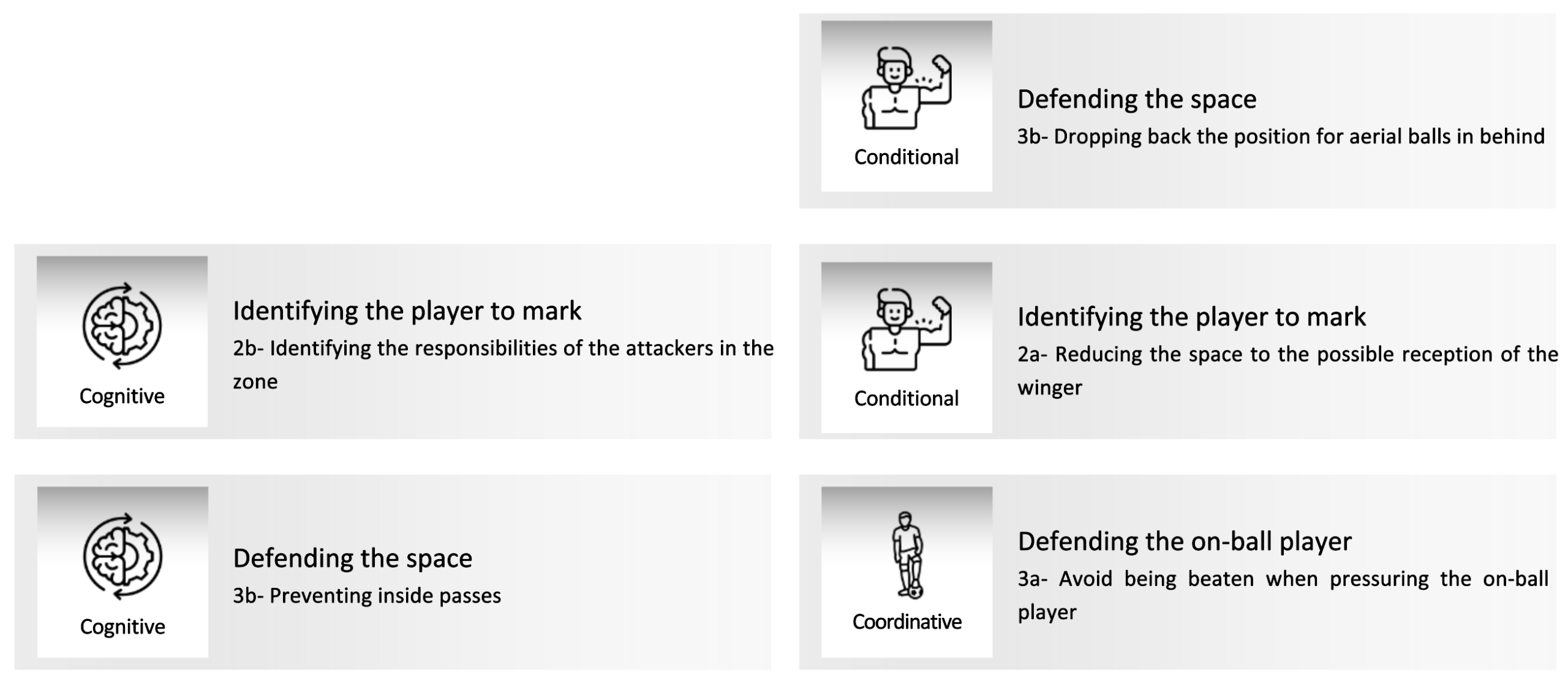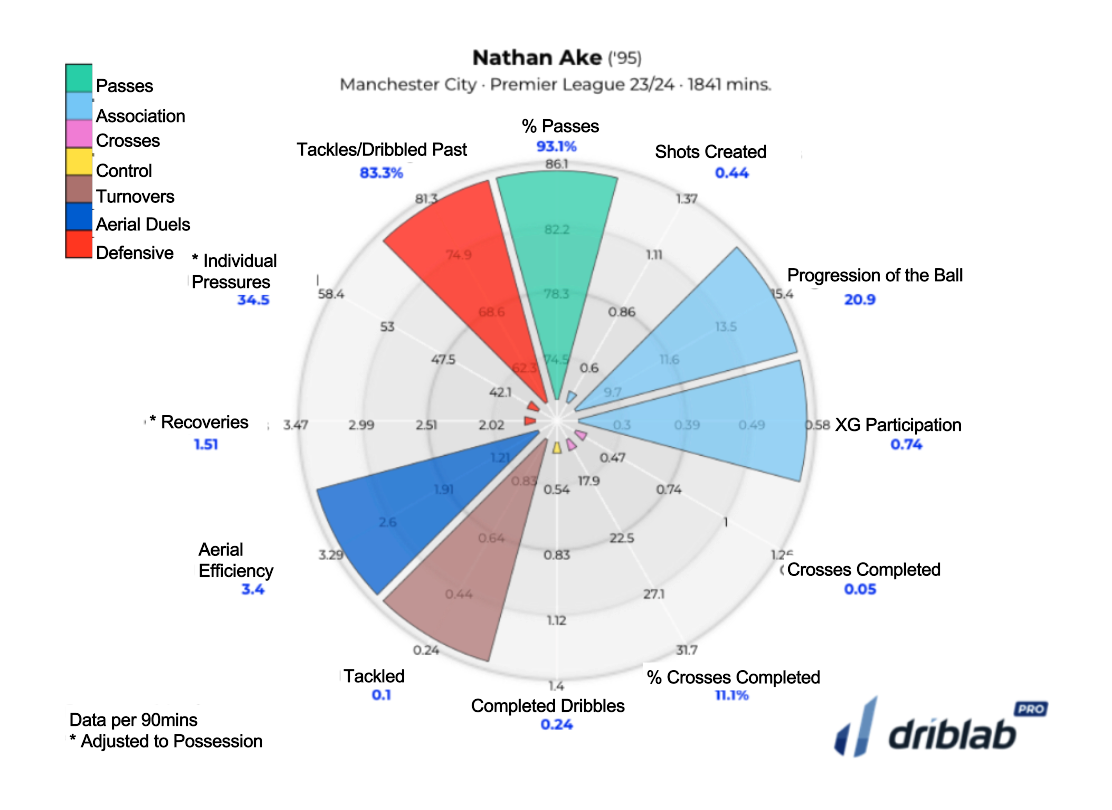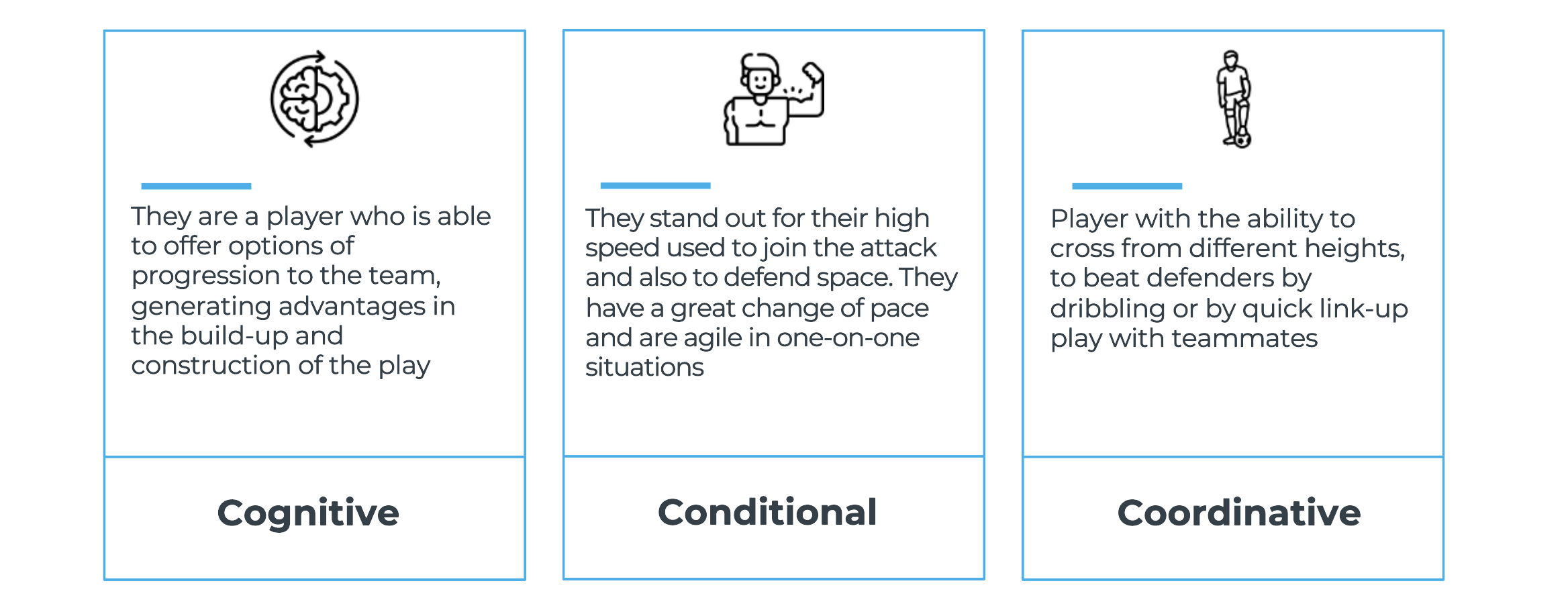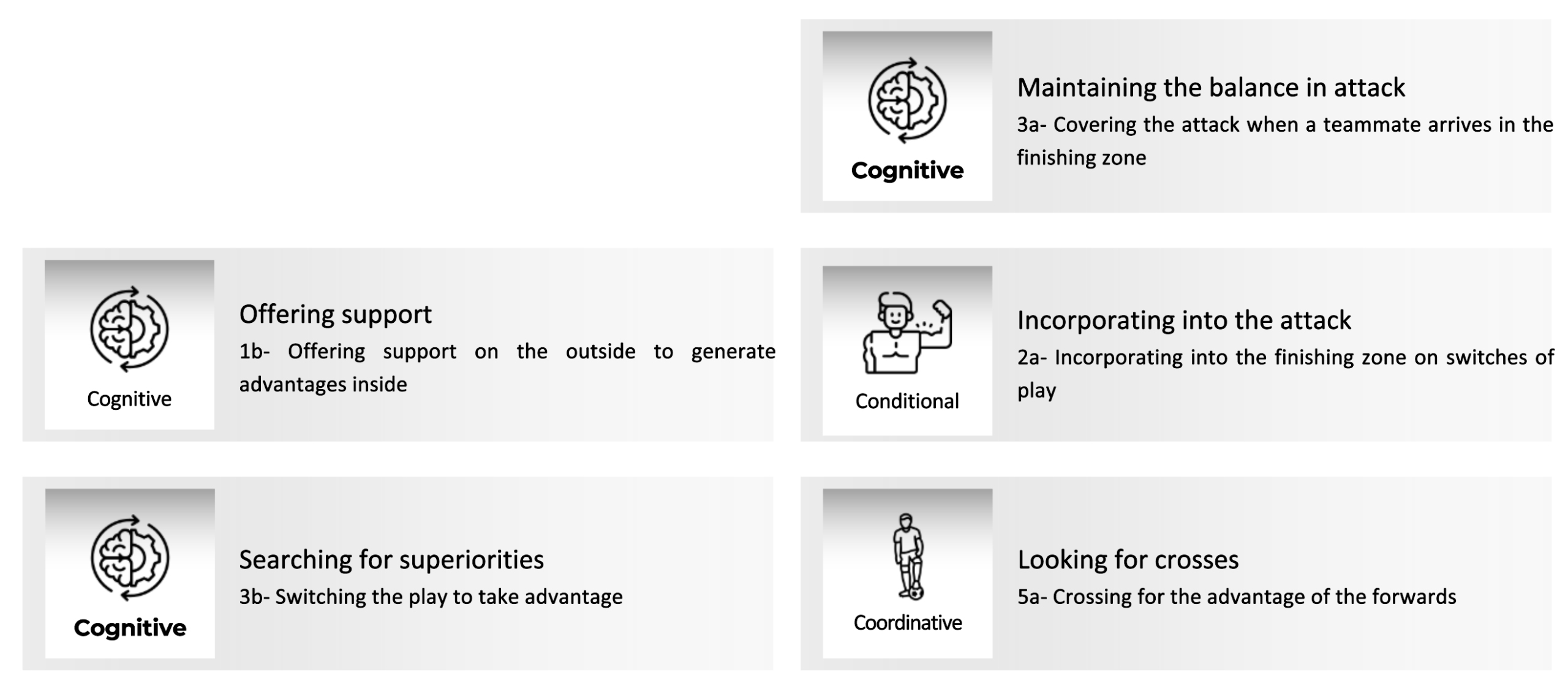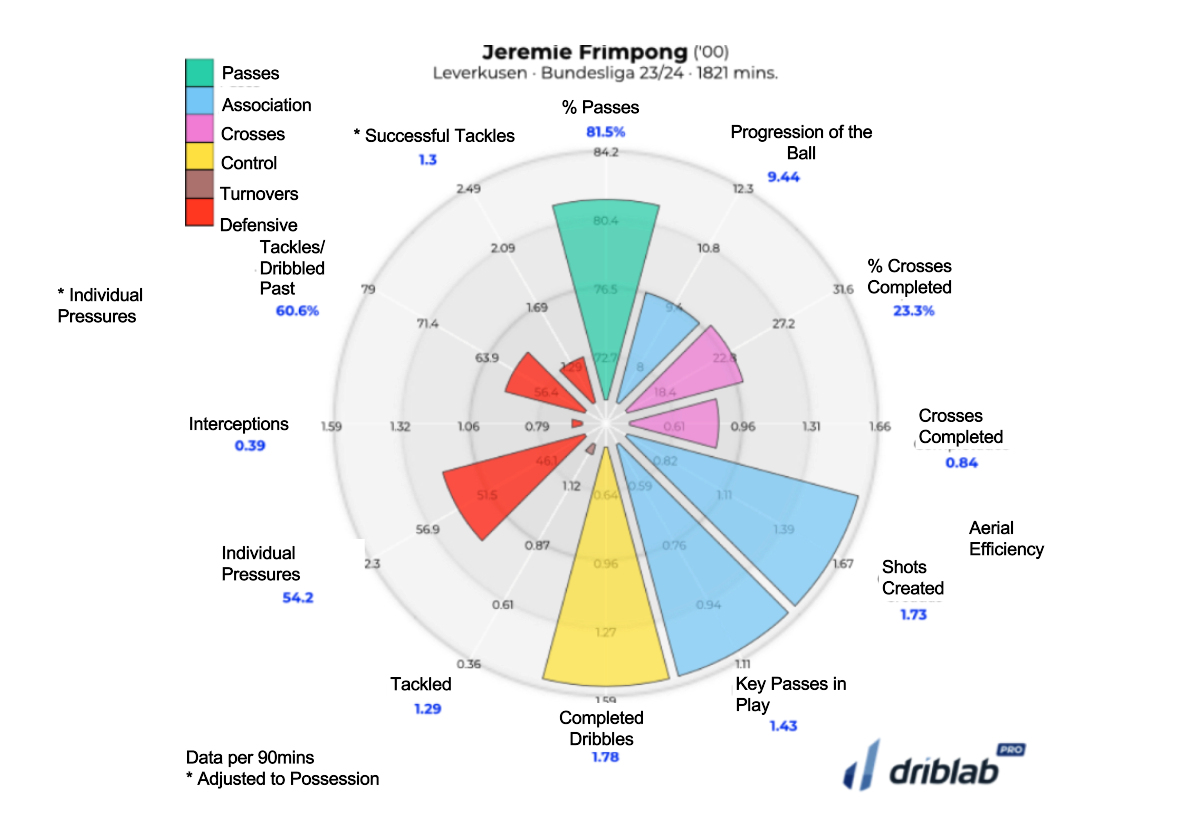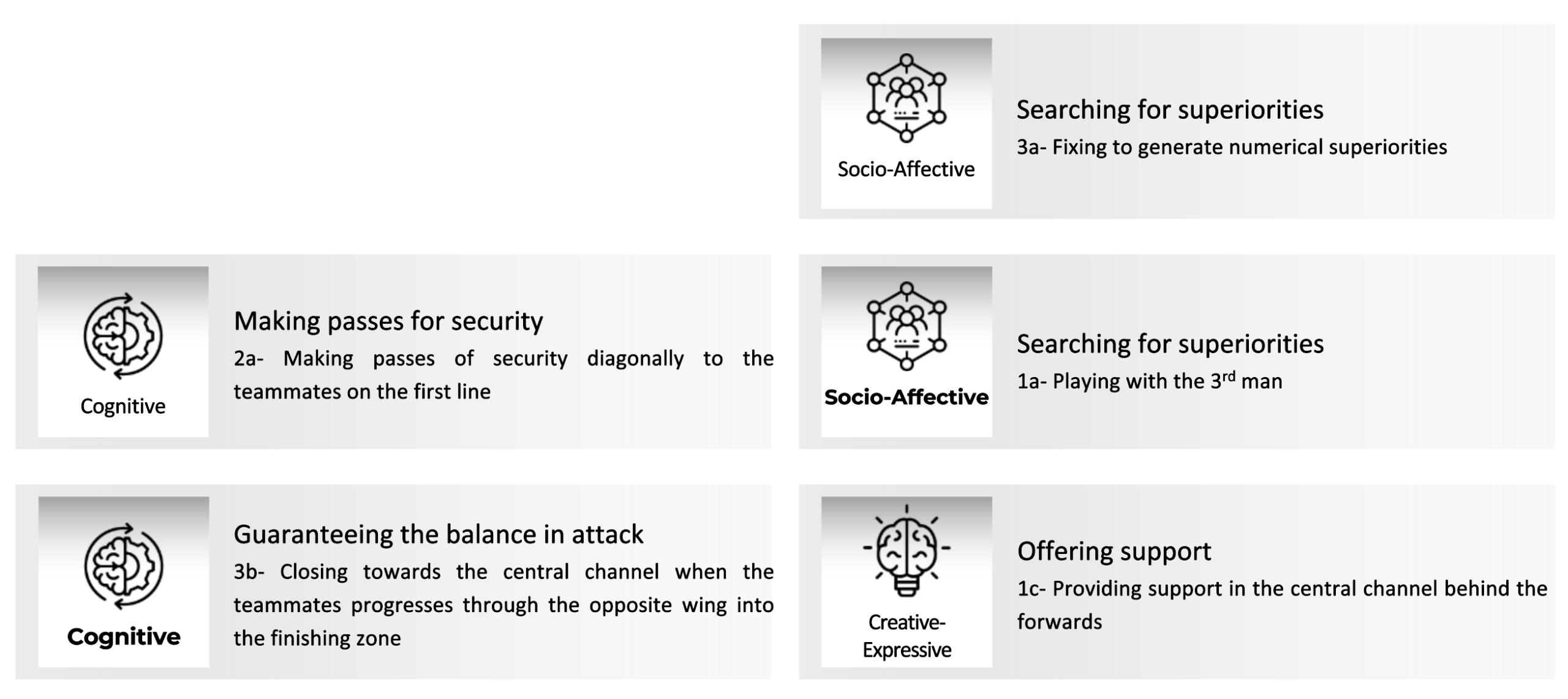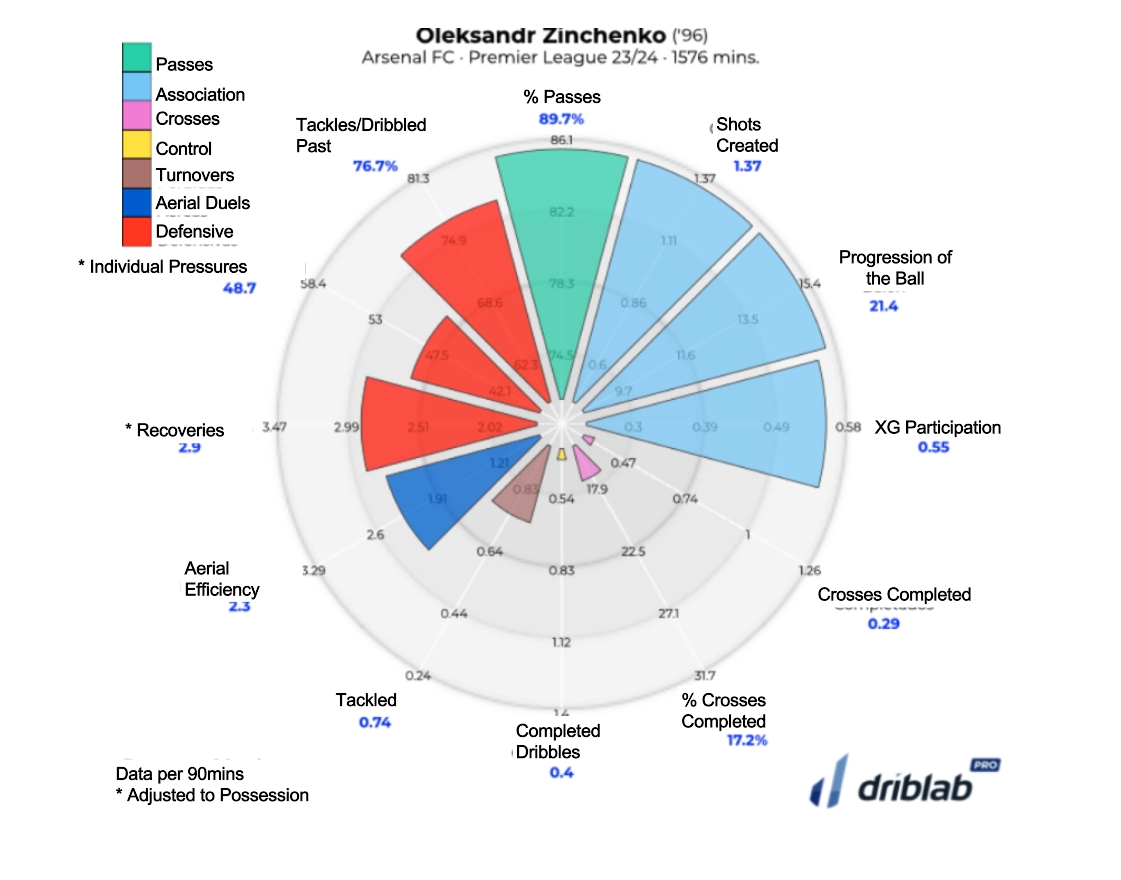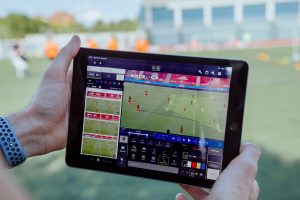Nowadays, the position of full-back is demanding more and more playing concepts in its position. It is no longer just a question of being fast or strong defensively, but also of being able to impact offensively from the wing and also to link up in the central channel to help the team when building up play.
At MBP Coaches’ School, we define three profiles of full-backs that we can find nowadays: defensive, attacking and playmaker. Below, we define the characteristics of each one.
1. Defensive Full-Back
This full-back profile stands out for the defensive positioning, as well as its defensive consistency, maintaining the balance of the line. The following structures stand out:
Figure 1. Structures that highlight the profile of a defensive full-back. Source: MBP Coaches’ School
In order to do so, these full backs will need to master the following five fundamentals:
Figure 2. Individual fundamentals to be mastered by the defensive full-back profile. Source: MBP Coaches’ School
They are full-backs who excel in defending one-on-one situations, avoiding being beaten. They are a player who maintains the balance of the defensive line well. However, we can see how their out is lacking when it comes to attacking, as they are not a player who reaches the final third to provide wide crosses.
Figure 3. Radar of Nathan Aké’s actions during the 23/24 Premier League season with Manchester City.. Source: Driblab
2. Attacking Full-Back
These are players with a lot of attacking projection, participating in the final third of the pitch and being key in the attacking phase of the team. Although they have the same structures as the previous profile, their behaviour and playing situations will not be the same:
Figure 4. Structures that stand out for the attacking full-back profile. Source: MBP Coaches’ School
Taking into account the most frequent playing situations of the attacking full-back, it will be very important for him to be able to master certain individual fundamentals linked to the attacking phase of the team:
Figure 5. Individual fundamentals to be mastered by an attacking full-back profile. Source: MBP Coaches’ School
They are players with a great attacking contribution through the creation of dangerous actions, but with difficulty in defensive tasks. They have a great ability to create chances, provide key passes in the play and complete dribbles. Finally, we can also highlight their ability to link up with their teammates.
Figure 6. Radar on Jeremie Frimpong’s actions during the 23/24 season in the Bundesliga with Bayer Leverkusen. Source: Driblab
3. Playmaker Full-Back
Tends to be a player with the ability to join the attack, but participating more in the construction of the play. They are noted for their ability to offer support and generate advantages. For this, we highlight the following structures:
Therefore, they will be players who will have to master individual fundamentals that will allow them to be key players in the construction and progression of the team’s play:
Figure 8. Individual fundamentals to be mastered by the playmaker full-back profile. Source: MBP Coaches’ School
With what we have analysed, we see it is a player profile that is outstanding for having a balanced performance between attacking play (great contribution in the construction of xG) and defensive play (high volume of recoveries), as they are capable of defending well in one-on-one situations, recovering many balls. However, in the attacking phase, they have a very high percentage of offensive participation and effectiveness in passing.
Figure 9. Radar on Oleksandr Zinchenko’s actions during the 23/24 Premier League season with Arsenal. Source: Driblab
With what you have analysed so far, what profile of full-back best fits your way of playing? What behaviour would you ask of them during the game? You will have to evaluate several aspects since, as you can see, the figure of the full-back nowadays plays a very important role in the collective teamwork of the team.
Want to learn more about Individual Fundamentals by Position?
The ‘Specialist in Individual Fundamentals by Position’ course will allow you to study in depth more than 90 Individual Fundamentals by Position of the player. All these fundamentals are the result of an extensive study of each and every one of the most common and relevant situations in which each player finds themselves in during a game depending on their position on the field. Once these situations in the play have been identified, we study which are the optimal responses that give the player the best chance of success.

